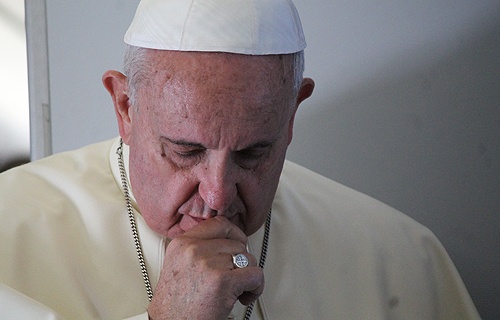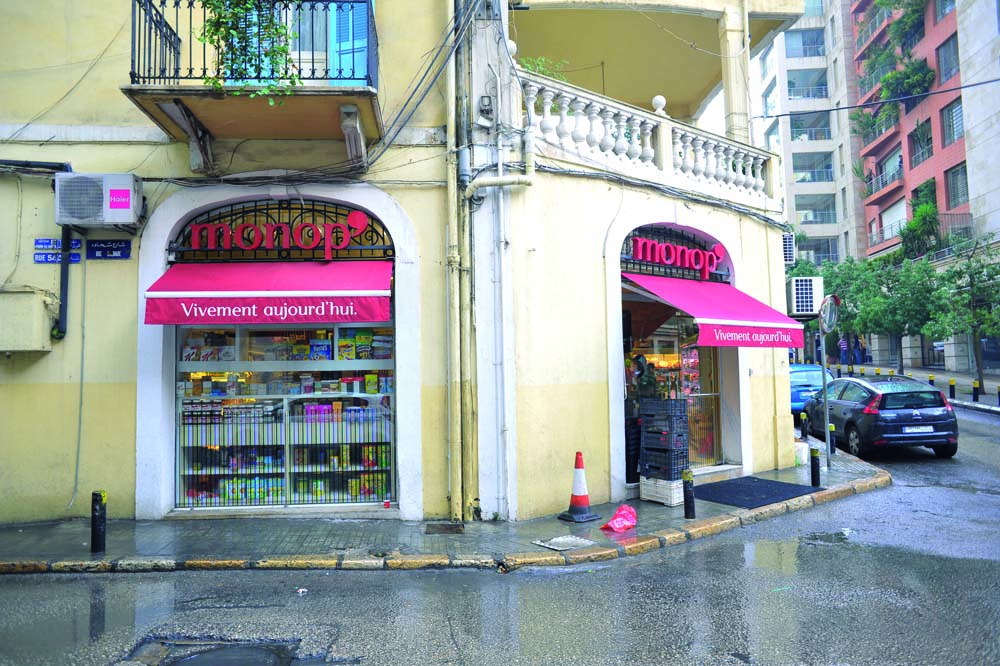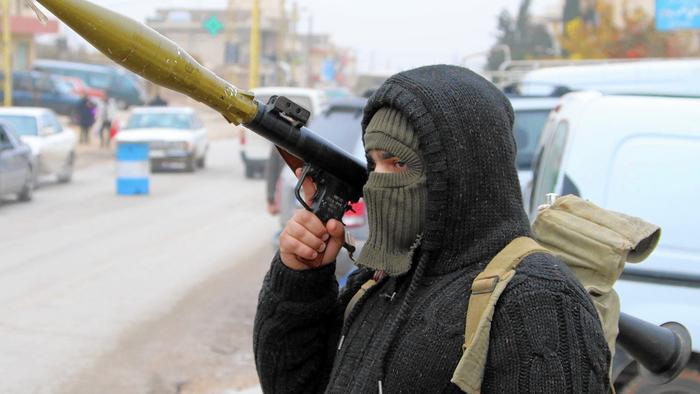BEIRUT: Hezbollah and the Maronite church continue to foster strong relations, the party’s politburo chief Sayyed Ibrahim Amin al-Sayyed said Friday. “The relationship between us is [very strong], and it is our duty to discuss and exchange views even if we differed on certain matters,” Sayyed said, denying any estrangement between Hezbollah and the […]
Three gunmen were killed overnight when the Lebanese army thwarted an attempt by militants to infiltrate an area on the outskirts of the northeastern border town of Arsal. The state-run National News Agency said Friday that one of the dead jihadists is a Syrian member of the al-Qaida-linked al-Nusra Front. NNA identified him as […]
Members of a Lebanese water ski club wear Santa Claus costumes while they perform in the bay of Jounieh, north of Beirut (AFP Photo/Patrick Baz) A man dressed in a Santa Claus outfit rides on a horse cart past Lebanese soldiers patrolling a street, during celebrations for Christmas in Tripoli, northern Lebanon […]

.- In a Christmas message to Christians of the Middle East, Pope Francis grieved the violence that has ravaged and displaced many of the region’s faithful. But the birth of Jesus, he insisted, gives us the ultimate consolation – God has come in the flesh to save us.
“I write to you just before Christmas, knowing that for many of you the music of your Christmas hymns will also be accompanied by tears and sighs,” Pope Francis said in his Dec. 23 message. “Nonetheless, the birth of the Son of God in our human flesh is an indescribable mystery of consolation: ‘For the grace of God has appeared for the salvation of all people.’” In his remarks, the Pope stressed the need for unity in peace efforts between Eastern Catholic Churches and Orthodox Churches, as well as continued dialogue with Jews and Muslims in the region.
“The more difficult the situation, the more inter-religious dialogue becomes necessary. There is no other way,” the Pope said. “Dialogue, grounded in an attitude of openness, in truth and love, is also the best antidote to the temptation to religious fundamentalism, which is a threat for followers of every religion.”
BEIRUT: Gunmen robbed a pharmacy in eastern Lebanon Thursday, making off with about $1,300 after firing their weapons to intimidate the pharmacist, media reports said. Three men with pistols stepped out of a white Mercedes, entered Hussein Sahili’s pharmacy in the Zahle village of Torbol, and forced the victim to hand over LL2 million […]
Greek Orthodox Archbishop of Beirut Elias Audeh called on Thursday politicians to give up their narrow interests to safeguard the country, pointing out that the Lebanese are divided instead of exerting efforts to unite to avert dangers surrounding the state. “Don’t the Lebanese deserve that politicians give up their personal and narrow interests?” Audeh […]
BEIRUT: Maronite Patriarch Beshara Rai asked God during a Christmas Day mass attended by the country’s key Christian rivals to guide politicians towards electing of a new president. “How much we would like the light of God to guide officials to see the dangers and dire consequences of the lack of election of a […]

Lebanese Expat Pet Programme’, an initiative by Beirut for the Ethical Treatment of Animals (BETA), seeks families abroad to adopt rescued animals.
The campaign seeks to raise awareness about the fact that as a result of low adoption rates in Lebanon, the organisation has had to resort to sending Lebanese dogs abroad for adoption. JWT Beirut is the agency behind it.
“Our shelters are full. Many of the dogs we have rescued have permanent injuries due to abuse and many are fully-grown dogs not puppies. These two factors make them less likely to be adopted in Lebanon. In addition, we have a no kill policy. It is not an option to euthanise our animals if we cannot find them homes. As a result, we have had to look abroad for adoptive families due to very low adoption rates in Lebanon,” said Helena Husseini, vice president, BETA.

Retailing in Lebanon in 2014 felt the impact of global trends, as well as influences particular to the chaotic situation in the Middle East. In particular, Lebanon’s ailing economy and the influx of over 1 million refugees from Syria has had a major impact on the sector.
According to Business Monitor International, while sales of sporting goods, electrical appliances and consumer electronics have been down by 7 to 10 percent, grocery retail sales in supermarkets and hypermarkets were up more than 5 percent. Significantly, the UN sponsored exchange card program for refugees has put LBP 300,000 ($200) a week into the hands of each refugee family to spend on food. Coinciding with this boost to demand, many refugees themselves have started small stores, increasing competition significantly. In fact, An-Nahar has reported that the number of small grocery stores in Lebanon has increased by as much as 70 percent. This has made life even more difficult for the small native operators — particularly in areas of north Lebanon and the Bekaa valley, where many refugee families are concentrated. In addition to this, like everywhere in the world, independent food stores have had to face continued growth in the number, and market share, of the major supermarket chains, which have been successfully diversifying what they offer. In Lebanon, this has included deep discount chains such as Fahed Super Value, premium stores such as TSC Signature, and the local Monop’ mini-markets.




